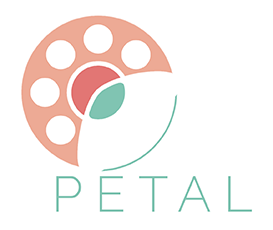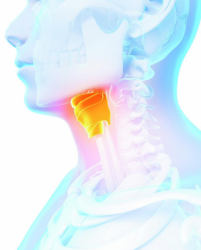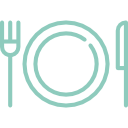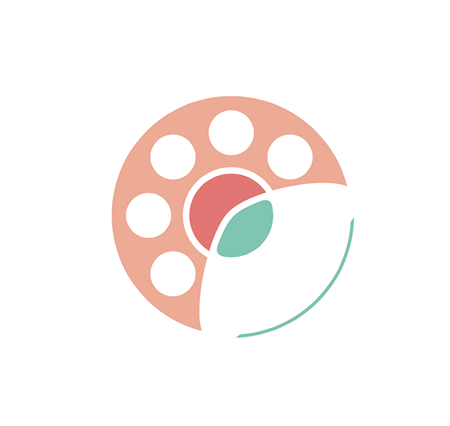

LARYNGECTOMY.NET
Therapeutic workshops
Step 3: Workshops during hospitalisation
The objective of the workshops during hospitalisation is to prepare the hospital discharge. They are intended for the patient and the caregiver. The topics retained are chosen among those derived from the analysis of needs. There are 5 topics: tracheostomy care, emergency procedures, feeding with nasogastric tube and gastrostomy, communication and the resources.
Tracheostomy care
 Possible participants: nurse, surgeon, speech pathologiste
Possible participants: nurse, surgeon, speech pathologiste
The objective of this workshop is for the patient to be able to carry out the following tracheostomy care on his/her own: performing tracheal suctioning, dealing with complications during suctioning and being independent with the cannula. This workshop is primarily intended for the patients. Caregivers may be present, however the objective is not making them into care providers or taking away responsibilities or independence from the patient. There is no specific pre-requirement to participate in this workshop apart from the fact of having a cannula.
This workshop takes up one of the acquisitions that must be demanded from the patient prior to hospital discharge, beyond a TPE programme. The idea is in particular to formalise the way the patient is approached, to ensure a message and practice that is identical between all care providers. In other words, these workshops formalises, manages a practice that is already present but not necessarily uniform.
Emergency procedures
 Possible participants: nurse, surgeon, speech pathologist
Possible participants: nurse, surgeon, speech pathologist
The objective of this workshop is to make sure that the patients and caregivers are capable to deal with a potential emergency situation in this type of clinical situation. This workshop is divided in three sections around the identification, action and prevention. Furthermore, an awareness raising of the use of the special number 114 is also approached within this session.
This workshop responds to the concerns expressed by patients and caregivers on returning home. For this reason caregivers also have a role in the acquisition of such knowledge. Beyond the legitimate anxiety in view of their current experience, the difficulties that they encounter, nothing produces more anxiety than the unknown. Having information on the potential risks, knowing how to identify them, prevent them as well as acting if they occurred allows them to be decision-making and ready players again. This also has the objective of avoid wrong reactions, orientations or wasted time in the more or less urgent and vital treatments.
Communication
 Possible participants: speech pathologist, nurse, surgeon
Possible participants: speech pathologist, nurse, surgeon
This topic is divided in 3 phases. Two workshops during the hospitalisation and one workshop afterwards. The general idea of these workshops is to allow the patient to become fully aware of the modifications caused by the surgery resulting in a change in his/her method of communication initially. At a later stage, to allow him/her to envisage a new method of communication for him/herself but also with and for others. In this respect, the purpose of the first workshop “I no longer have a larynx, and so what” is that the patients and caregivers (if they wish) be capable of explaining the transformations and functional changes following a total laryngectomy. Subsequently, allowing the patient with his/her caregiver, if present, to find new methods of communication through daily life situations. The idea of this concept is to prevent any rupture in communication and isolation on returning home. This concern, this lack of foresight has been clearly mentioned by caregivers and patients during the preliminary interviews. This second workshop is a real applicable tool and a potential source of reassurance. It clearly responds to a social isolation issue experienced by certain patients, and to a lack of communication within the couple. Nonetheless this does not solve previous communication problems within the couple.
Food
 Possible participants: dietician, nurse
Possible participants: dietician, nurse
Upon discharge from hospital, the patients have a naso-gastric tube, a gastrostomy or are capable of eating through the mouth again. Once again for the purpose of independence, a workshop specific to each situation may be proposed to them. The objective of each of these workshops is to lead the patients and the caregivers to be capable of adapting their diet according to their needs, under good conditions and to detect any complications that require warning. There will certainly be a large participation by the caregivers, especially female, who seek information and guidance.
Resources
 Possible participants: social assistant, nurse
Possible participants: social assistant, nurse
This workshop has been thought through by social assistants. The objective is being able to target administrative, financial issues and the different aids, encountered by the patients and their next of kin previously. At the end of this workshop, the participants are capable of identifying who to address, what steps to take as a function of the target problems. The underlying idea of this workshop is to allow the patient or his/her caregiver to navigate the intricacies of administrative bureaucracy, being able to be autonomous in the procedures, relieve social assistants of procedures that could be managed on their own and allow them to have more time to dedicate to more complicated dossiers.

